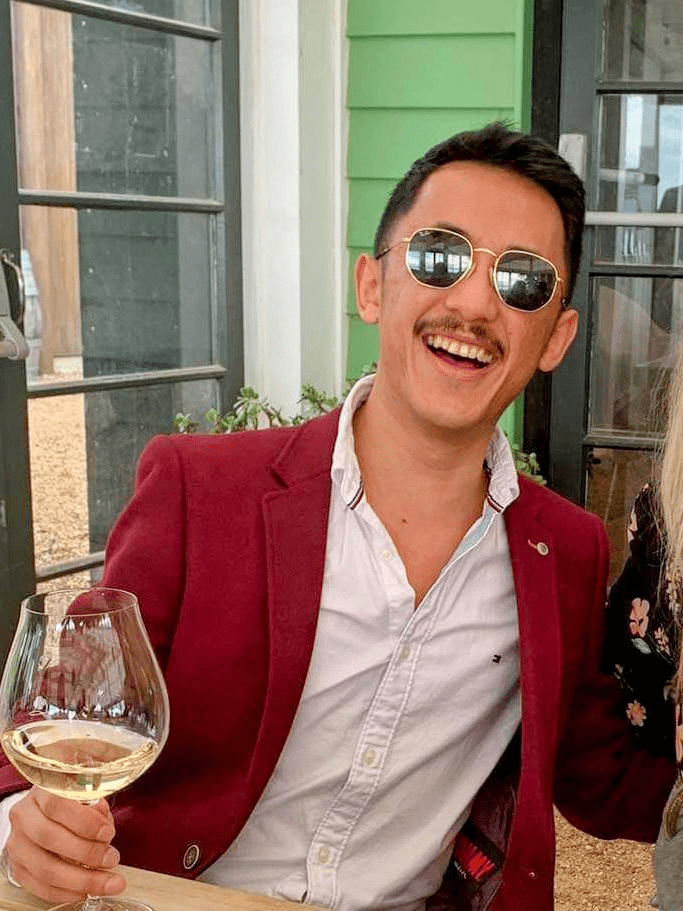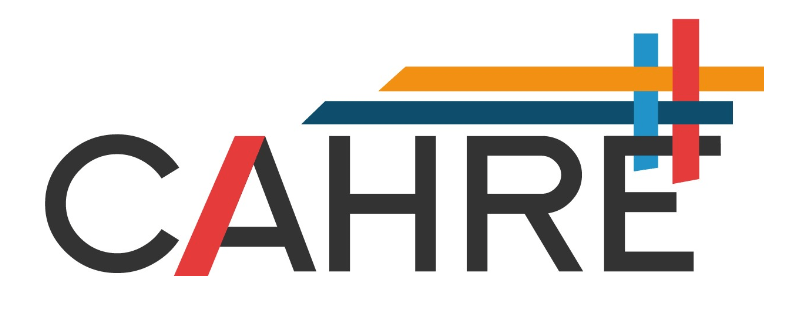In this month’s post, Tony Sriamporn, writes about the feeling of being ‘not quite this enough, but also not quite that enough’ that many, if not all, from migrant families can relate to. While he touches on heavy topics of racism and discrimination, the tone is light and comedic, making for an insightful yet enjoyable read.
Navigating my own intersectionality has been awful at times. Ignorance sounds blissful, but I’m unfortunately a victim of my own toxic introspection.
My identity issues started early (while the neuroses came later). I was born in Thailand to a Thai mum and Chinese dad. Thai people always told me I must be half white because I’m too light-skinned to be Thai, and Chinese people always told me that I couldn’t possibly be Chinese because I’m too dark-skinned.
Growing up in Napier, I was raised in a military household by a very Scouser, very mild-butter-chicken-and-a-garlic-naan stepdad. Mum tried her best to keep the culture alive (God love her) but we quickly assimilated to the English Catholic lifestyle to fit in with the new family.
But no amount of Sunday school or Billy Joel could erase the fact that I looked different to everyone else wherever we went. Unlike Thailand, the script was completely flipped when everyone at school, including the teachers, thought I was Maori. Wrong brown, I thought.
Essentially, I grew up in New Zealand learning that the best way to avoid comments that made me uncomfortable was to be white.
Just fit in, Tony.
What did that look like to a 13-year-old? I hung out with more white kids, chipped a tooth playing cricket, played rugby (okay it was touch rugby because I never had the height or build for rugby-proper), and started asking mum to make me sandwiches for school lunches.
“Mum, I don’t want a stir fry with bok choy for my lunch, I want what other white kids have!”
What a mistake that was when Mum starting packing my American’s Cup lunchbox with those disgusting LeSnak biscuits that came with a sad excuse for a “cheese” dip (still waiting for confirmation that it’s dairy product).
Suddenly, I was called a “banana” by my Asian friends and a “Twinkie” by my gay friends (you know, yellow on the outside and white on the inside). Admittedly, I did chuckle when I was called a “Yukon gold potato” – you have to give them points for the creativity.
Despite the popularity of carbs and cream-filled snacks in our society, I never felt like I fitted into any community.
Then when I entered the gay scene, the racism and microaggressions seemed to be more accepted. “No fats, no femmes, no spice, no rice” or “White boys only” is extremely prominent on dating sites and hook-up apps. On the flip side, there’ll be profiles that say “all colours welcomed,” or “Asian friendly” masking their festishisation as a charitable gesture.
The list goes on.
“Your English is so good” – thank you, I grew up in the same country as you.
“You don’t have an Asian accent at all!” – why did you expect me to have one?
“What is your first language?!” – undeniably a more modern take on “what country are you really from?”
Exclusionary vibes didn’t stop when I entered higher education. I can still vividly picture my undergrad social psychology lecturer saying, “we provided many options in the drop down box for Asian ethnicities, but it’s always annoying not having enough sample size in each category so we have recode these into one [Asian] category during analysis”. Despite understanding the research and statistical practicalities, it still doesn’t feel great to have your existence from a culturally diverse continent reduced down to a single label like some sort of inconvenience.
Look, this whole post is not to say “all white people are bad” …some of my closest friends are white.
Of course I’m memeing, but there are elements of truth here. Am I a “bad Asian” because I don’t have many Asian friends? Have I not connected enough with my culture due to my perceived societal pressures to perform ‘whiteness’? All I wanted as a kid was to fit in and not to be mocked because my lunch smells different.
Perhaps, this is how it is when someone tries to make sense of their complex intersectionality. But do I need to understand it? Address it? Should I turn a blind eye to these internalised issues that doesn’t really impact me in my everyday life? At the end of the day, I am just a [insert preferred racial food metaphor] who grew up in a privileged upper middle class family, undertaking higher education, and living a semi-comfortable life. But would I even consider my intersectionality if I had grown up in Thailand or China?
Perhaps, I’m part of the problem. Should I use my platform to conduct Asian-centric research? Or relearn how to speak Thai or Chinese? Should I learn how to drive (properly) to not feed into stereotypes? Should I not have a problem with people asking about my culture and where I’m from? Where do I draw the line to distinguish between genuine interest in my culture and hostile microaggressions?
At this point in other commentaries on race, the authors would offer some answers to the questions I’ve posed. Some might even give suggestions on how to be a good ally. But here’s my take on allyship: go read a book and don’t burden me with the responsibility of educating you. And if that makes me a “bad Asian” because I’m not willing to exhaust myself for your own self-actualisation? So be it.
Okay, that was too aggressive. Look, truthfully, I don’t have any of these answers. Maybe there’ll be others out there who can validate my experiences, or answer these seemingly impossible questions.
But in the meantime? That’s what my therapist is for.

About the author
Tony Sriamporn
tony.sriamporn@auckland.ac.nz
Tony Koson Sriamporn is a public health and health psychologist researcher who has worked in the HIV sector since 2018. He is completing his doctoral research in the School of Population Health at the University of Auckland, focusing on blood donation among gay and bisexual men in Aotearoa. His passions include quantitative and experimental research methods, convincing his colleagues to not take themselves too seriously, and Taylor Swift.

Good blog Tony! I’ve had so many of the same experiences growing up in NZ. I completely agree with recommending others to work on their allyship themselves and not making it someone else’s responsibility
Great piece. Love how you highlight the intersection of race and other concepts like the impact of the male gaze.
Such a well-written piece, I’ve always struggled with the question of “where do I draw the line between genuine interest in my culture and hostile micro aggressions?” Growing up as an Asian in NZ, I can say that overthinking in a white man’s world is so real and it always feels like it’s our responsibility to be open minded and accepting of micro aggressions disguised as “preferences” or “curiosity”, I’ve realised I shouldn’t have to overthink so much so that I’m not a “bad Asian”, it’s their responsibility just as much as it is mine, yes read a book!
Such a good read! Hits close to home.
I had a colleague once I’ve worked with more 3+ years ask me how my family was doing with the cyclone that hit Fiji. He thought I was rude when I answered I didn’t know what he meant because I’m from Bangladesh. 🤦🏽♀️
Thanks for sharing this, Samara! Not only do we feel these perceived pressures to perform ‘whiteness’, but other people are also expecting us to do the same when we don’t conform to that expectation as well! Wrong brown!
Hi Tony, what a well written & beautiful blog. I did shed a few tears. Thank you for sharing your experience. As an “ethnically ambiguous” Afghan-Persian & Muslim woman, I can relate on many levels- including Taylor Swift. It’s not easy growing up culturally confused & self hating. Thank you for your honest blog, a lot of people can relate.
Hey, Tony. I’m a 63 year old gay white male in the USA, therefore I have the ultimate overview re: how everyone else should behave and perceive the world.
So, why can’t you just be beneficially Thai but in a Kiwi way? That might be accidentally healing for someone, somewhere.
As for intersectionality and people who wake up everyday primed to identify instances of microaggressions — Mm. Perhaps they are overthinking things krub. 😉